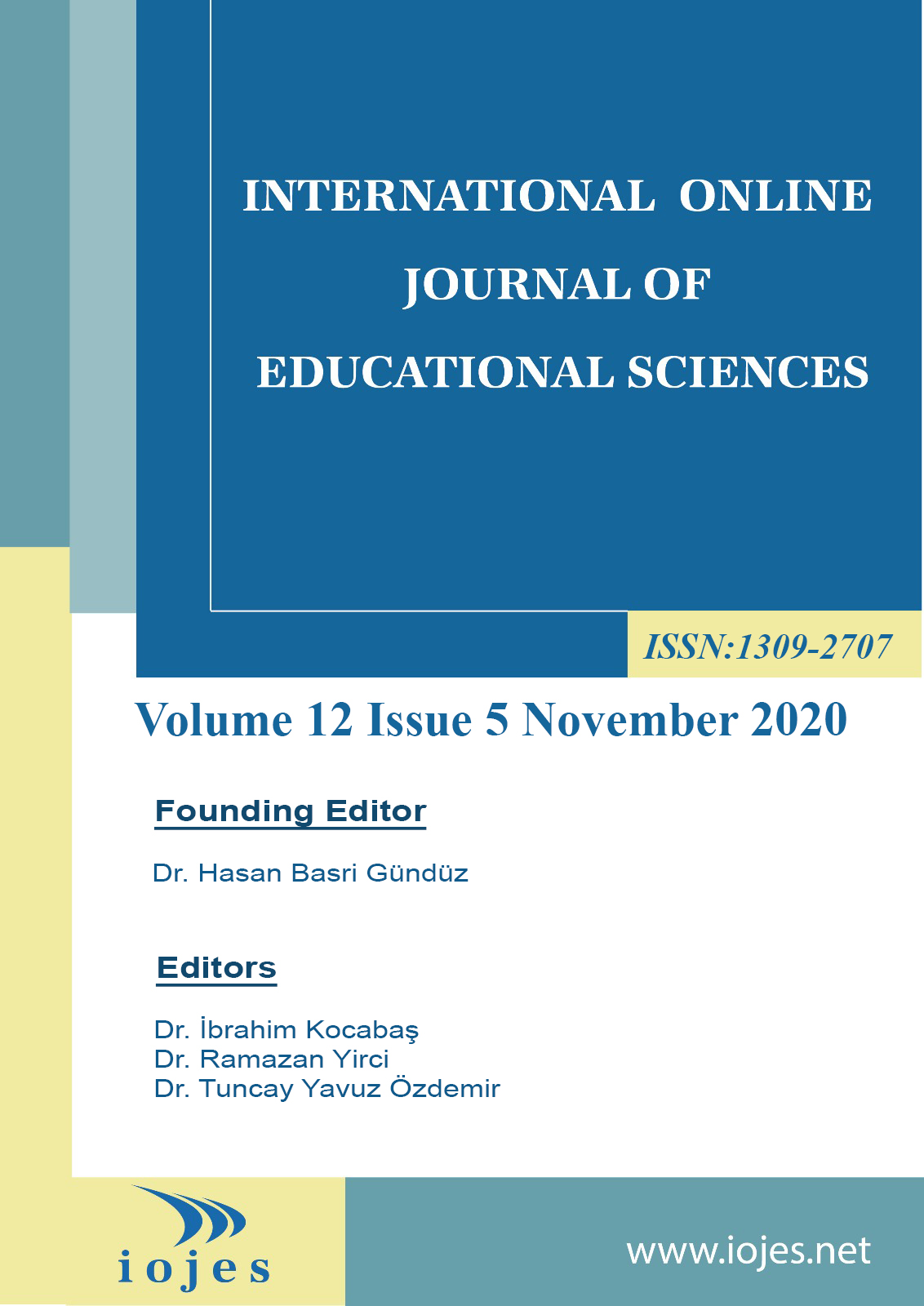Investigation of Mental Toughness Levels of Candidates Preparing to Special Ability Exams for Physical Education and Sport College
Author :
Abstract
Keywords
Abstract
In this study, mental toughness level, confidence, continuity and control sub-dimensions of the candidates prepared for special ability exams of physical education and sports colleges were examined according to gender, age, sports year, individual and team sport and high school variables they studied. The study involves 329 persons having a sports history of at least one year, average age of 18,99±1,91 years, weight of 63,85±10,44 kg, height of 171,68±7,82 cm and sports age of 6,20±4,92 years. In the study, the "Sport Mental Toughness Questionnaire" developed by Sheard and his colleagues, and the questionnaire prepared by the researchers were used. SPSS 22.0 program, Kolmogorov-Smirnov test and Mann-Whitney U and Kruskal Wallis tests were used for the analysis of data, the distribution of normality of data, and non-parametric tests since data did not show normal distribution, respectively. As a result of the research, it was found that the mental toughness levels of the candidates preparing to special ability exams differ in terms of mental toughness and sub-dimensions according to gender, age of the sport and type of high school they studied. According to this, it can be said that male athletes are more confident in themselves, self-confidence increases as the age of sports increases in general, occupational high school students are more calm and controlled, individual athletes can take on more responsibility and are combative. In this stage, it can be argued that in addition to the trainings made by the candidates preparing for special ability exams in the field of sports, mental development trainings will have a positive effect on the performances of them.
Keywords
- Altıntas, A., & Koruc, B. K. (2017). Examining Psychometric Properties of the Sport Mental Toughness Questionnaire-SMTQ. Hacettepe Journal of Sport Sciences, 27(4), 162–171. DOI: 10.17644/sbd.311985.
- Bull, SJ., Shambrook, CJ., James ,W., Brooks J., (2005). Towards an Understanding of Mental Toughness in Elite Cricketers. Journal of Applied Sport Psychology;17:209e27.DOI: 10.1080/10413200591010085
- Cherry, HL. (2005). Psychometric Analysis of an Inventory Assessing Mental Toughness. Masters Theses, 588. University of Tennessee – Knoxville. https://trace.tennessee.edu./utk_gradthes/588
- Connaughton, D., Wadey, R., Hanton, S., & Jones, G. (2008). The Development and Maintenance of Mental Toughness: Perceptions of Elite performers. Journal of Sports Sciences, 26(1), 83-95. DOI: 10.1080/02640410701310958.
- Graham, J., Hanton, S., & Connaughton, D. (2002). What is This Thing Called Mental Toughness and Investigation of Elite Sport Performers? Journal Applied Sport Psychology, 14 (3) 205-218.DOI: 10.1080/10413200290103509.
- Gucciardi, D. F., Gordon, S., & Dimmock, J. A. (2009). Advancing Mental Toughness Research and Theory Using Personal Construct Psychology. International Review of Sport and Exercise Psychology, 2(1), 54-72. DOI: 10.1080/17509840802705938.
- Gulsen, D.B.A.,Yildiz, A.B., Yilmaz, B., & Sahan, H. (2019). Examination of the Relationship Between Self-Talk and Mental Toughness Levels of the Students in the Faculty of Sports Sciences. Gaziantep University Journal of Sports Sciences, 4(4), 459-470. DOI:10.31680/gaunjss.621767.
- Ince G. (2009). The Compare with Spinal Mobility and Result of Physical Ability Test of Applicants of Physical Education and Sports Department of Cukurova University. CBU Journal of Physical Education and Sport. Sciences. 4(4), 178-185. E-ISSN 2149-1046.
- Ince G., Zulkadiroglu, Z., ve Bostan, B. D. (2004). Comparison of The 1st and 2nd Trial Scores of Applicants of Physical Ability Test of School of Physical Education and Sports, Cukurova University. Spormetre The Journal of Physical Education and Sport Sciences, 2(1), 5-10. DOI:10.1501/Sporm_0000000017.
- Juan, M. V T., & Lopez, A. (2015). Mental Toughness of Scholar Athletes. Researchers World, Journal of Arts, Science & Commerce. 6(3), 22. E-ISSN2229-4686.
- Kafkas, A., Yildirim, T., Kafkas, M., ve Ozmen G., (2014). An Analysis of the Relationship Between Anxiety Levels and Exam Performances of the Candidate Students Entering the Special Ability Exam for School of Physical Education and Sports Program. Inonu University, Journal of Physical Education and Sport Sciences. 1(1), 1-13. e-ISSN 2148-6786.
- Madrigal L, Hamill S, Gill DL (2013). Mind Over Matter: The Development of the Mental Toughness Scale (MTS). Sport Psychologist, 27(1): 62-77.DOI: 10.1123/tsp.27.1.62.
- Masum, R. (2014). A Mixed Method Analysis of Mental Toughness in Elite and Sub-Elite Male and Female Tennis Players in Pakistan. Advances in Social Sciences Research Journal, 1,110-122. DOI: 10.14738/assrj.16.555.
- Nicholls, A. R., Polman, R., Levy, A., & Backhouse, S. H. (2009). Mental Toughness in Sport: Achievement Level, Gender, Age, Experience and Sport Type Differences. Personality and Individual Differences, 47, 73– 75. DOI: 10.1016/j.paid.2009.02.006.
- Sheard, M., Golby, J., & Wersch, A. V. (2009). Progress Towards Construct Validation of the Sports Mental Toughness Questionnaire (SMTQ). European Journal of Psychological Assessment, 25, 186-193. DOI: 10.1027/1015-5759.25.3.186.
- Tibbert, S. J., Andersen, M. B., & Morris, T. (2015). What a difference a “Mentally Toughening” Year Makes: The Acculturation of a Rookie. Psychology of Sport and Exercise, 17, 68 - 78. DOI: 10.1016/j.psychsport.2014.10.007.
- Weinberg, S., & Gould, D. (2014). Foundations of Sport and Exercise Psychology 6th Edition with Web Study Guide. Human Kinetics. ISBN: 1450469817,9781450469814.
- Yaprak, Y., & Durgun, B. (2009). Comparison of Anthropometric Characteristics in Subjects Applied for Department of Physical Education and Sports. Nigde University Journal of Physical Education and Sport Sciences, 3(2), 120-130. ISSN: 1307-6477.
- Yarayan, Y. E., Yildiz, A. B., & Gulsen, D. B. A. (2018). Examination of Mental Toughness Levels of Individual and Team Sports Players at Elite Level According to Various Variables. The Journal of International Social Research, 11(57). DOI: 10.17719/jisr.2018.2509
- Yardimci, A., Sadik, R., & Kardas, N. T. (2017). The Relationship Between Loneliness Levels and Sport Mental Resistance Levels of American Football Players. Journal of Sport Sciences Researches, 2(2), 79-90. DOI:10.25307/jssr.337838.





